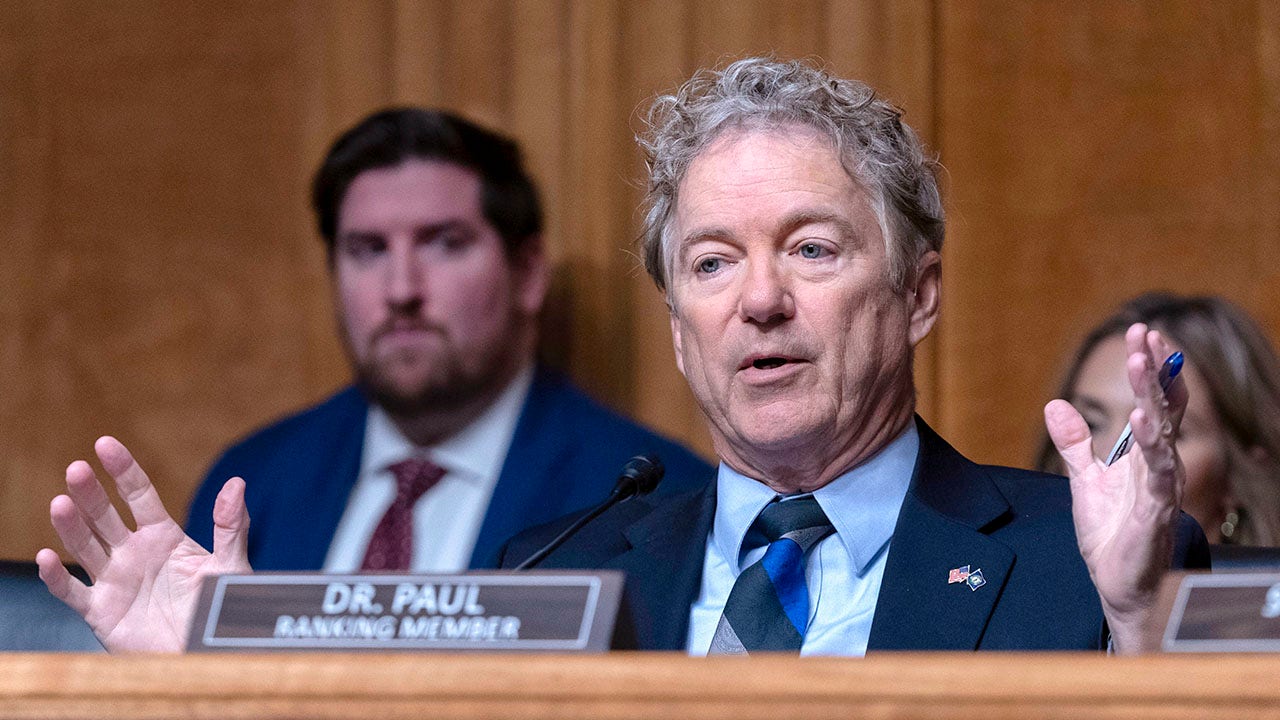Rand Paul prevents passage of drone surveillance bill: Should we hastily grant broad surveillance authority?
In his remarks, Paul voiced his concerns about government overreach, specifically referring to the growth of governmental powers.

On Wednesday, Sen. Rand Paul, R-Ky., prevented the passage of a Senate bill that would have granted funds to state and local authorities to monitor drones that have been causing confusion among New Jersey and Northeast residents in recent weeks.
Paul opposed the bill's passage, arguing that it would increase government authority.
He emphasized the need for proper consideration and debate by the committees of jurisdiction before granting sweeping surveillance powers to this body.

The bill, as stated by Paul, would increase federal authority to monitor communications and hinder drone activity, which raises significant privacy, civil liberties, and Fourth Amendment safeguards against unjustified search and confiscation.
Chuck Schumer, the Senate Majority Leader, attempted to expedite a bipartisan bill's passage in the Senate by requesting unanimous consent on the floor. However, it was blocked by Paul.
"Schumer stated that the individuals in New York and New Jersey are experiencing a great deal of uncertainty and are not receiving satisfactory responses to their inquiries. The confusion surrounding the drone sightings demonstrates that the federal government is unable to handle the situation on its own."

The proposed legislation would grant local authorities the power to track drones and expand federal agencies' authority to start a pilot program to allow states and local authorities to disrupt, disable, or seize a drone without the operator's prior consent.
Some local and state officials have been concerned about the drone sightings in the Northeast, but the Biden administration has stated that the drones do not seem to indicate foreign interference or a potential danger to public safety.
However, they have not determined who is responsible for them.

Trump urged the administration to disclose or destroy the drones, while Paul opposed the bill due to ambiguity about the urgency of the situation.
""The government acknowledges no imminent drone threat, despite being told that urgent legislation is necessary to address it," he said."
The Associated Press contributed to this report.
politics
You might also like
- California enclave announces it will cooperate with immigration officials and the Trump administration.
- Danish lawmaker urges Trump to abandon Greenland acquisition plan.
- Now, the Dem who labeled Trump an "existential threat to democracy" is obstructing his nominees.
- The lawyer for Hegseth criticizes the "dubious and inaccurate" testimony of his ex-sister-in-law.
- The House GOP outlines a plan to improve the healthcare system, emphasizing its impact on national defense.



















